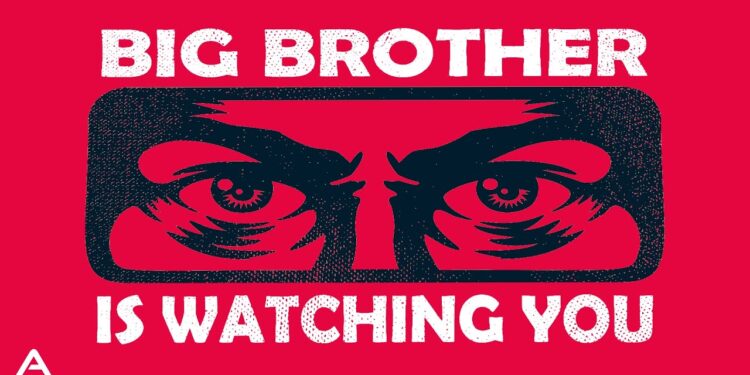In my Spectator column this week I’ve written about my shock on discovering that various shadowy agencies within Whitehall were monitoring me and other critics of U.K. Government policy during the coronavirus crisis, as revealed in Big Brother Watch’s new report. Here’s how it begins:
About six months ago I was contacted by Big Brother Watch, the civil liberties campaign group, and asked if I wanted to help with an investigation into the surveillance of critics of the Government’s pandemic response by state agencies. Would I submit subject access requests to different Whitehall departments to see if I was among the critics of the Government’s pandemic response who’d been monitored by the Counter Disinformation Unit, the Rapid Response Unit, the Intelligence and Communications Unit and the 77th Brigade?
I thought it unlikely, but decided to play along and on Monday night Big Brother Watch published its report revealing that I was one of the dozens of journalists, scientists and MPs who’d been spied on in this way. Others included Peter Hitchens, Julia Hartley-Brewer, Carl Heneghan, Tom Jefferson and David Davis. It’s pretty extraordinary that members of Boris Johnson’s government managed to convince the people working in these agencies, some of them with a background in the security services, that those of us who questioned the wisdom of the lockdown policy and vaccine passports were potentially dangerous actors whom the state needed protecting from.
They did this by branding our scepticism ‘disinformation’ or ‘misinformation’ – or by squashing the two together under the heading of ‘mis/disinformation’. The reason for merging these categories is that some of these agencies were originally set up to protect the integrity of British democracy from hostile state actors spreading false information to influence elections. That’s textbook ‘disinformation’ and, on the face of it, has little connection with, say, an Oxford medical professor writing an article for The Spectator questioning the evidential basis for the ‘rule of six’, which is then shared on social media. But if you’re the minister responsible for defending this policy, you can first label the article ‘misinformation’, then claim it falls into the category of ‘mis/disinformation’, then persuade the Rapid Response Unit (RRU) to monitor the professor’s social media activity and report back. As the author of the Big Brother Watch report says, that’s a “concerning level of mission creep”.
The response of the Ministry of Defence, when asked about the 77th Brigade’s activity, is that it wasn’t targeting me or anyone else. Rather, the 77th Brigade and the other cyber security units were tasked by the Government with trawling social media for misinformation and disinformation about its response to the pandemic and, in the course of doing that, it caught various journalists, scientists and politicians (as well as ordinary members of the public) in its net. Yes, they flagged up when individual posts were, in their view, a breach of the terms of services of social media platforms and, yes, the people they were reporting to in various Government departments then used their ‘trusted flagger status’ to alert those social media companies to these breaches, presumably in the hope that they would then suppress these posts or attach a health warning to them.
But it’s not much of a defence of the 77th Brigade to say it was monitoring critics of Government policy in general, rather than looking at particular critics. It shouldn’t have been monitoring such criticism in the first place. The people running these agencies should have drawn up clear guidelines defining what was and wasn’t ‘disinformation’ and made it clear to the Government that journalists, scientists and politicians challenging the scientific basis for, say, the two-metre rule or the rule of six, fell outside their remit. We weren’t trafficking in ‘disinformation’, but making a perfectly legitimate contribution to what should have been an open public debate.
As I say in my Spectator piece, there is no single revelation in Big Brother Watch’s report that’s sufficiently scandalous to prompt a public inquiry into the role of these agencies during the pandemic and their relationship with Government ministers and senior officials in Whitehall, or the role they collectively played in getting certain voices silenced on social media. The reason for that may be because nothing suitably egregious happened (although I think the fact that critics of Government policy were spied on in this way is pretty egregious), or it may be because it did and the departments just didn’t disclose it in response to subject access and FoI requests. But even supposing that the 77th Brigade et al didn’t go further than trawling our social media accounts during the pandemic, what’s to stop them monitoring, say, our WhatsApp accounts during the next ‘public health emergency’ under a Government that’s even more irritated by its critics than Boris’s Government and has fewer qualms about spying on them? Step forward Keir Starmer! As I say at the end of my Spectator column:
What if a Labour government decides we’re in the midst of a ‘climate emergency’ and anyone who criticises its policies is trafficking ‘mis/disinformation’? In those circumstances, I suspect Hitchens, Hartley-Brewer and I would have a much tougher time.
Worth reading in full.
Stop Press: In the House of Commons earlier today David Davis asked a Government minister to confirm that the Cabinet Office did nothing to interfere with Peter Hitchens’s communications either through discussion with social media platforms or by any other mechanism.
Stop Press 2: Watch me explaining to Freddy Gray on Spectator TV how Boris’s Government managed to persuade the 77th Brigade and other shadowy agencies to monitor people like Peter Hitchens, Julia Hartley-Brewer and me. (You can see the full interview here.)












To join in with the discussion please make a donation to The Daily Sceptic.
Profanity and abuse will be removed and may lead to a permanent ban.